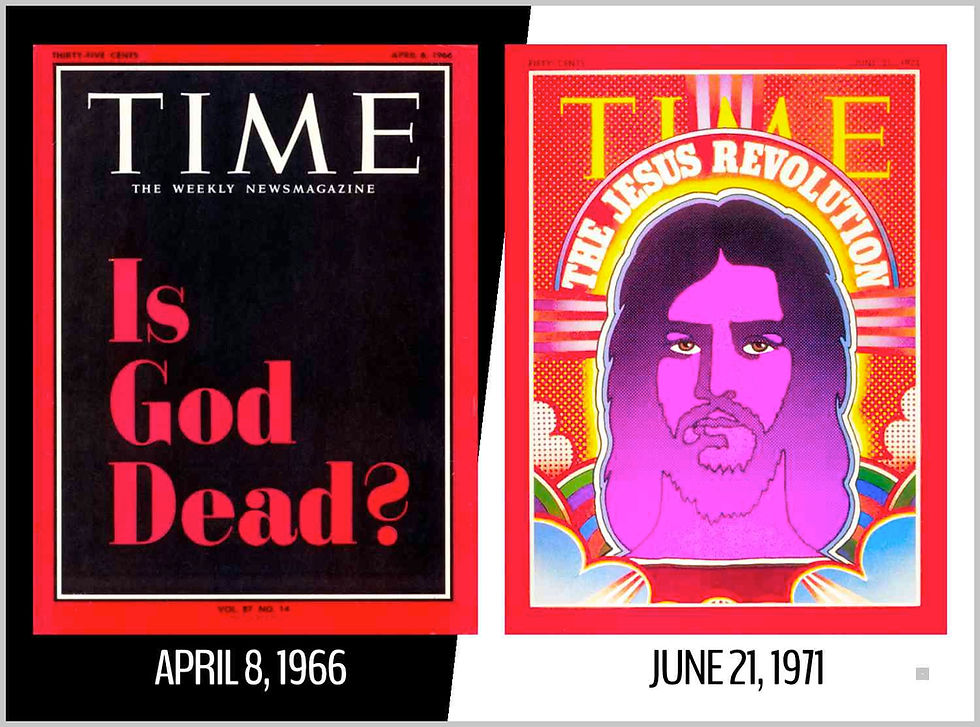Your True Colors
- Jul 2, 2025
- 3 min read

What is your reaction to the following quote?
“The Mayflower that carried the Pilgrim fathers to religious liberty in America went on her next trip for a load of slaves. The good ship ‘Jesus’ was in the slave trade for our fathers. Is it to be wondered at that race and color prejudice still exists in the West in spite of Christianity? It came with it.”
I know of a church that seemed to have great success with racial diversity, particularly along black/white lines. A certain cultural and personality-type of White and African-American Christians enjoyed a common expressive worship and preaching style. In other words, their bond was their methodologies and theological views regarding the power of the Holy Spirit.
And then it unraveled. Deeper issues finally came to the surface.
In 2014, after Michael Brown was shot and killed by the police, protests broke out in Ferguson, Missouri, decrying police brutality and the inequities between black and white arrests.
The next year, a young white supremacist joined a Bible study in Emanuel African Methodist Episcopal Church. During the closing prayer, he stood up, pulled out a Glock and rapidly executed the believers, shouting, “Y'all want something to pray about? I'll give you something to pray about.” Nine black Christians were murdered.
Two years later, the “Unite the Right” white supremacy rally saw men carrying torches and chanting, “You will not replace us” through the University of Virginia’s campus. It ended violently with a car plowing through a crowd of counter-protesters. The administration responded by condemning the violence, but added, “you also had people that were very fine people, on both sides.”
Three years after that, George Floyd’s last words were a muffled cry: “I can’t breathe.” A Minneapolis policeman’s knee on his neck for nearly ten minutes ended his life. Protests erupted around the world.
Suddenly, the deeper racial issues in the diverse church congregation were exposed. Sadly, painful, challenging, and critical conversations were avoided. The recognition of personal pain had been Band-Aided over, but no healing balm applied. The church fractured.
We see cultural issues being challenged immediately in the early church when Hellenistic Greek-speaking Jewish widows felt overlooked by the Church’s food distribution program. Or when Paul confronts Peter about favoring the Jewish believers over the Gentile ones in Galatia. These cultural issues and points of pain needed to be addressed if they were to have authentic relationships.
My dad and mom had a complicated and often antagonistic relationship, even with physical altercations. When they became charismatic believers in their late 40’s, it was peaceful, but short-lived. Because they never dealt with deep issues in their pasts in any meaningful way, it eventually took a new “spiritual” twist: they simply accused each other of having a demon.
If, as Jesus said, we are to “love one another as I have loved you,” this will require a real death to self. If alcoholics are told to make a “searching and fearless moral inventory” of their lives in the fourth step of twelve, how much more should those of us who call ourselves Christ-followers? That’s a part of true repentance. And if the incarnation is God slipping into the skin of those who would reject him, it means that we are to empathetically go where we cannot in our own power; it must be by the Spirit that is breathed into us.
So what about the quote in the opening? Sad to say, that was written 100 years ago by the remarkable missionary, E. Stanley Jones, in his eye-opening classic, “The Christ of the Indian Road.”
Leaders, surely we can make more progress than this. Let’s disciple our people in the art of self-sacrifice and unbounded love.
Dave Workman | The Elemental Group
Every healthy organization is marked by four essential traits: Integrity, Passion, Servanthood, and Imagination. With a practitioner perspective, author Dave Workman offers common sense guidance and tools to maximize leadership. Filled with insight, humor, and reflective exercises, this is an indispensable exploration of these four universal values. Check out Elemental Leaders: Four Essentials Every Leader Needs...and Every Church Must Have.




Comments